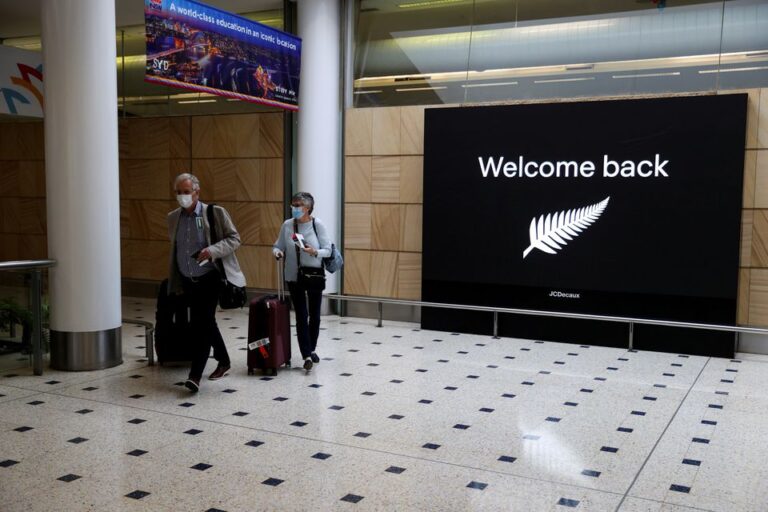
SYDNEY, (Reuters) – New Zealand raised the COVID-19 alert level in its capital Wellington on Wednesday amid concerns that the city may have been exposed to the highly infectious Delta variant that has triggered a fresh outbreak in neighbouring Australia.
Wellington will move to the country’s ‘Alert Level 2’, one level short of a lockdown, until midnight on Sunday as a precautionary measure to curb any potential outbreak after an Australian tourist tested positive for COVID-19 on returning to Sydney from a visit to the New Zealand capital over the weekend.
“This is not a lockdown … these are precautionary measures which will remain in place while we contact trace and test all of those we need to,” New Zealand’s COVID response minister Chris Hipkins said at a news conference in Wellington.
Under alert level 2, offices, schools and businesses can remain open but will have to maintain social distancing rules. Sport and recreation activities are allowed, subject to conditions including physical distancing, but gathering of more than 100 people will not be allowed, including at weddings, funeral and other events.
With a population of 5 million people, New Zealand is among a handful of countries that have contained the spread of COVID-19 and returned to normalcy, with the last positive case due to community transmission reported about four months ago.
New Zealand agreed to quarantine-free travel with neighbouring Australia earlier this year, as both nations had controlled the community spread of the coronavirus.
But fresh concerns of an outbreak have emerged after the positive test for the unnamed male Australian tourist, who visited over a dozen locations including the national Te Papa museum, pubs, cafes, a bookshop and a hotel during his trip over last weekend.
Passengers on flights used by the person were also asked to isolate and undergo testing.
Australia’s most populous state, New South Wales (NSW) has seen its latest virus cluster swell to more than 30 cases in a week, prompting New Zealand to pause quarantine-free travel.
NSW on Wednesday tightened restrictions on gatherings and movement of people in Sydney for a week amid fears the latest cluster of the highly infectious Delta variant could spur a major outbreak.
Residents in seven Sydney council areas in the city’s east and inner west were banned from travelling for non-essential reasons outside those regions, while household gatherings will be limited to five guests and masks will be mandatory in all indoor locations, including offices.
“We have gone from near and present danger to a very real and present danger, not just in a shopping centre but right across Sydney,” NSW state Health Minister Brad Hazzard told reporters in Sydney on Wednesday.
The first virus cluster in NSW in more than a month was linked to a driver who transports overseas airline crew and who visited several places, including a shopping centre in Bondi, a popular tourist hotspot.
Ten new cases were reported by 8 p.m. local time on Tuesday but 13 further cases have been detected since then.
Snap lockdowns, tough social distancing rules and swift contact tracing have helped both Australia and New Zealand to contain outbreaks and keep their COVID-19 numbers relatively low.
Australia has reported just over 30,350 cases and 910 deaths since the pandemic began, while New Zealand recorded more than 2,300 confirmed cases and 26 deaths.






